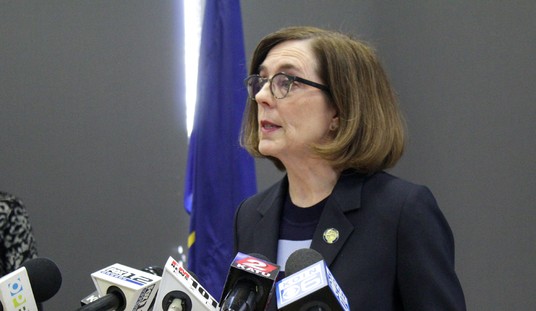Harry Reid didn’t seem so nice when he and his caucus stripped the Senate’s minority of its power to filibuster presidential nominees, but remind a Democrat of that and they’ll tell you it was a reasonable response to unreasonable Republican obstructionism. (They’ll tell you in the next breath that, given the present circumstances, they regret having done it.) An eternal rule of politics viewed through the left-media filter: When Republicans are “not nice,” it’s because they’re not nice. When Democrats are “not nice,” it’s because Republicans drove them to it.
Waters’s answer is predictable twice over. In the first place, every out-party copes with defeat to some degree by blaming it on the fact that it doesn’t fight hard enough. Their principles are correct; it’s the passion for those principles that’s lacking. That was a critique on the right of both McCain and Romney too. McCain wouldn’t go after Obama over Jeremiah Wright; Romney was too nice a guy to wage the war on the left that’s required to Make America Great Again. That lack of passion for political battle derived, supposedly, from their lack of passion for their ideology. (Never mind that Trump is far less of a doctrinaire conservative than either McCain or Romney is.) If either was a true believer in conservatism, he would have felt the urgency of the situation more deeply and responded by attacking with everything he had. It’s a comfort to believe this sort of thing when the alternative, that voters simply preferred the other guy’s political vision, is too painful to accept. Waters is showing you what that looks like here. The answer to the party’s problems is to be less nice.
There’s a second dimension to it. This is part of the debate on the left since the election over whether Democrats should try to get what they can from Trump by compromising with him or whether they should go full-bore obstructionist and block everything he tries to do, in the hope/belief that voters will blame Trump and the GOP for paralysis in Washington going forward. If you don’t read any liberal writers online, it’s hard to grasp just how mind-farked they’ve been by the political success of Republican resistance to Obama’s agenda in Congress. Obama’s presidency saw a debt-ceiling standoff, a government shutdown over ObamaCare, many, many Republican filibusters in the Senate, and sturdy Republican opposition in the House. (It was the House that blocked the Gang of Eight amnesty by refusing to take it up, remember, not the Senate.) And the “penalty” the GOP has paid for that obstruction is … phenomenal success in elections, leaving them with total control of the federal government and massive gains at the state level. Some on the left have convinced themselves that that strategy will work for them too. Impede Trump’s agenda and the same voters who elected him because they’re tired of “the system” will turn on him for having failed to make “the system” work. He’s selling himself as a strongman who’ll impose his will on the corrupt elites. Blow up that image by derailing his program in Congress and there’ll be nothing left of the Trump mystique as a change agent.
Waters seems all-in on that position, even going so far here as to say she won’t meet with Trump to discuss policy. The other position is typified by Chuck Schumer, who seems prepared to work with Trump on infrastructure, for starters, despite the fact that any major political victories for Trump will increase the chance that he’s reelected in 2020. The dilemma for Democrats is that Trump is more amenable to Democratic proposals (as a “former” Democrat himself) than Obama was to Republican ones. Obama is an ideologue, albeit not one as far left as the Bernie wing of the party would like; Trump is not, which makes it possible that he’ll be willing to meet Democrats more than halfway on popular big-government initiatives like infrastructure, paid maternity leave, and so on. If Schumer can get two-thirds of a loaf in compromising instead of half, that’s hard to turn down, especially knowing the internecine angst it would cause on the right to watch Trump cut Democrat-friendly deals. The risk for Democrats, meanwhile, if they follow Waters’s position and try to obstruct, obstruct, obstruct is that it requires them to win a messaging war with Trump in 2018 and 2020 over who’s to blame for the paralysis, and messaging is one of his strengths. Trump will hit the trail in 2018 and tell voters in swing states that he’s trying to make America great again but he doesn’t have enough Senate seats to do it right now. Democrats will counter that Trump’s had two years to try to make America great again and he’s failed, so the solution is to send more Democrats to Congress. Which message prevails in that contest? Because remember: The GOP has an outside shot at 60 seats in 2019 with a very favorable Senate map. If Democrats gamble on obstruction and it backfires, they’ll be completely at Trump’s mercy for the final two years of his term. If you’re going to sacrifice policy gains for political gains, you’d better be confident that those political gains will arrive. Will they?
Rep. @MaxineWaters told me she doesn't trust Trump, wouldn't meet at White House. Disagrees w @SenSchumer strategy. https://t.co/qmoLiVyRxz
— Jacob Soboroff (@jacobsoboroff) December 26, 2016








Join the conversation as a VIP Member